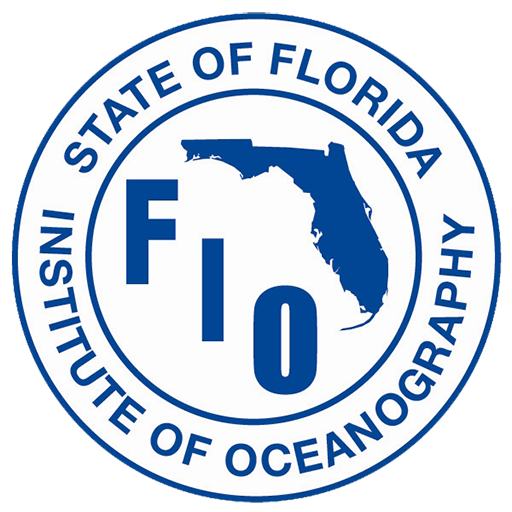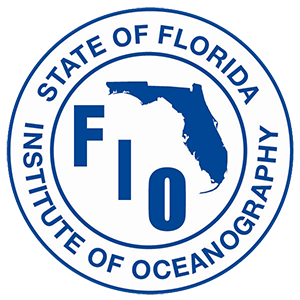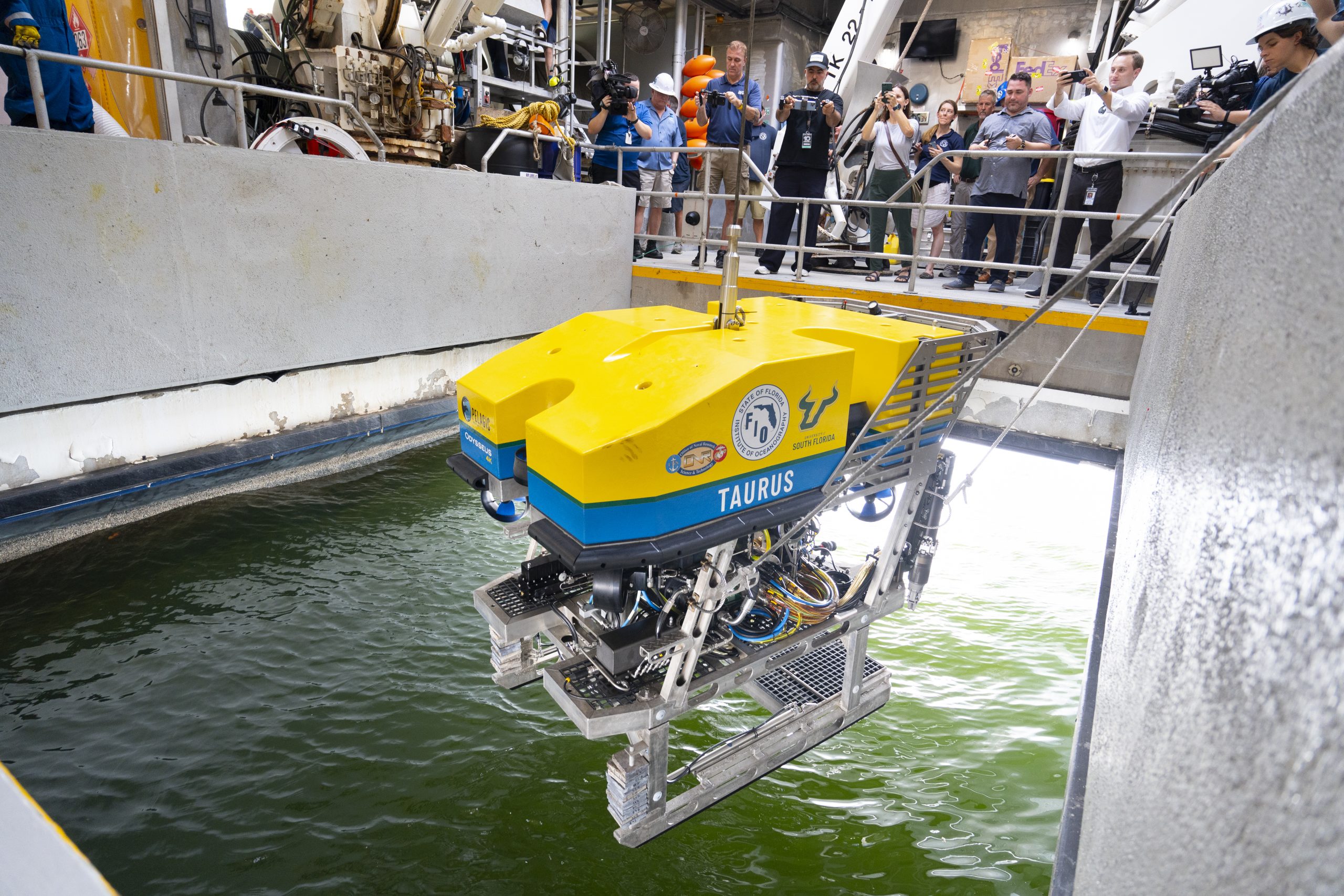ST. PETERSBURG, Fla. (July 8, 2024) – Researchers studying the deep sea have access to a powerful new tool with the acquisition of a sophisticated, remotely operated vehicle (ROV) by the University of South Florida and Florida Institute of Oceanography (FIO).
Named Taurus, the ROV can reach depths of up to 2.5 miles, allowing for exploration of some of the most remote areas of the ocean and the potential discovery of new species. The vehicle can also capture and livestream 4k imagery, expanding educational opportunities and appreciation for the underwater environment.
USF, the host institution of FIO, is the only university in the continental United States to own an ROV with such advanced capabilities, positioning it at the forefront of oceanographic research.
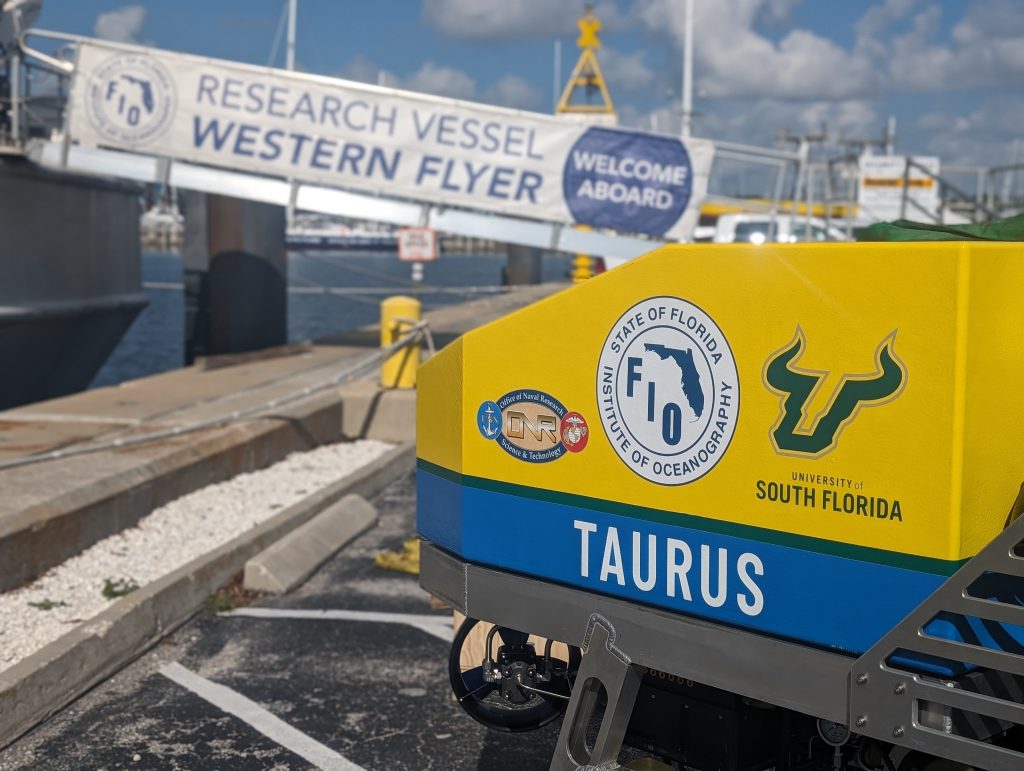
“The addition of ROV Taurus will build upon the impactful work taking place at the Florida Institute of Oceanography and strengthen the University of South Florida’s position as a global leader in oceanographic sciences,” said USF President Rhea Law. “This cutting-edge technology will create additional opportunities for our students to participate in immersive learning experiences and allow us to expand our research capabilities as we help solve critical challenges affecting our environment.”
The vehicle, designed and built by Pelagic Research Services (PRS), will be housed aboard the Research Vessel Western Flyer, a 117-foot twin-hulled ship that was granted to USF and FIO last year. Western Flyer is the most technologically advanced vessel in the FIO fleet and offers interdisciplinary research expeditions in the Gulf of Mexico, Atlantic and Caribbean waters as well as transformative opportunities for students to explore the field of ocean science.
The ROV Taurus is envisioned to be used in several different ways aboard the vessel, from conducting new research in deep sea environments to programs that train the next generation of marine scientists to public education initiatives.
“ROV Taurus will significantly advance our understanding of deep-sea environments that are relevant to Florida’s and the nation’s blue economy,” said Dr. Monty Graham, director of FIO. “The ability to livestream underwater missions and provide hands-on learning opportunities for students will foster the next generation of marine scientists, technologists and maritime professionals. Taurus will also have a tremendously positive impact on workforce development.”
On its first scientific mission in late July, which will focus on deep water shark and coral research, the ROV will be used by FIO’s Peerside program, which aims to broaden access and ongoing involvement among students with the ocean. Peerside is a year-round career development program that includes a ROV-focused cruise as well as the study of ROV dives from shore, which teaches students about technology and careers in ocean science.
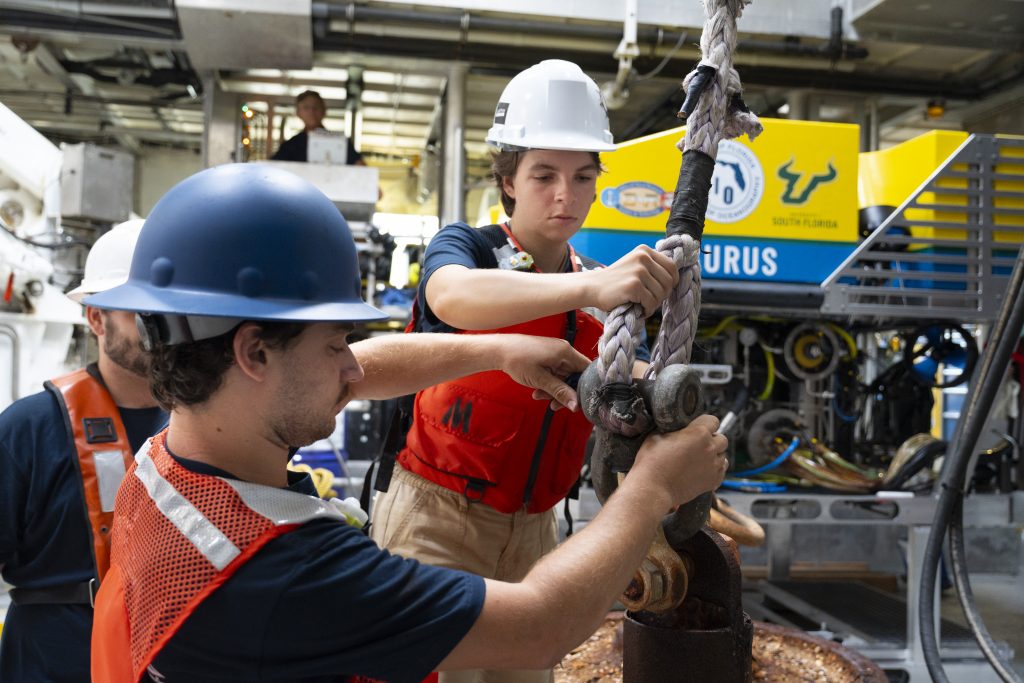
During such scientific cruises, the ROV’s advanced imaging and the Western Flyer’s high-speed internet capabilities can livestream footage of underwater missions directly into classrooms, and be incorporated into future lectures, school programs and community events.
“While ROV livestreaming has proven effective as an outreach and education tool, we will also use these technologies to maximize research potential. Collaborative science will utilize livestreaming of ROV video, data and real-time communications between researchers on ship and shore to make the ocean more accessible to more people than the vessel can accommodate,” said Nicole Raineault, FIO’s chief scientist.
The funding for the construction and operation of Taurus is provided by the Office of Naval Research (ONR). ONR funds also bolster the mission of the Peerside program.
PRS specially designed the ROV to be equipped with a variety of cutting-edge scientific technology, including manipulator arms that are able to interact with the underwater environment. It also has sample and sediment collection capabilities that allows researchers to gather physical samples from the ocean floor.
ROVs such as Taurus have led to exciting discoveries in the deep-sea environment. These include footage of never-before-identified species, hydrothermal vent systems, deep-sea coral reefs, underwater canyons and shipwrecks. ROVs have also played a crucial role in documenting the extent of pollution and litter in deep-sea environments, raising awareness on how human activities affect even the depths of the ocean.
The acquisition and deployment of this new ROV alsoleverages PRS’ multi-disciplinary expedition expertise. Founded in 2013, PRS brings state-of-the-art, subsea research tools, expedition planning and execution to the ocean community on a global basis. Notably, in 2023, PRS was tasked with the rescue and recovery of Oceangate’s Titan submersible, discovering the debris from the Titan on the sea floor using the Odysseus 6K ROV, the design on which the Taurus is based.
“The new 4K ROV system opens up opportunities for students and researchers to investigate areas beyond scuba depth by providing a highly capable platform for sensors, tools and sample collection, piloted by a professional team, to maximize research time,” says Edward Cassano, CEO of Pelagic Research Services and operator of the ROV. “Taurus’ design lends itself to both scientific research and the development and testing of new technologies – allowing researchers to work with engineers to improve deep-sea research methods.”
About the University of South Florida
The University of South Florida, a high-impact research university dedicated to student success and committed to community engagement, generates an annual economic impact of more than $6 billion. With campuses in Tampa, St. Petersburg and Sarasota-Manatee, USF serves approximately 50,000 students who represent nearly 150 different countries. U.S. News & World Report has ranked USF as one of the nation’s top 50 public universities for five consecutive years, and this year USF earned its highest ranking ever among all universities public or private. In 2023, USF became the first public university in Florida in nearly 40 years to be invited to join the Association of American Universities, a prestigious group of the leading universities in the United States and Canada. Through hundreds of millions of dollars in research activity each year and as one of the top universities in the world for securing new patents, USF is a leader in solving global problems and improving lives. USF is a member of the American Athletic Conference. Learn more at www.usf.edu
About the Florida Institute of Oceanography
The Florida Institute of Oceanography consists of 32 members including state universities. Established by the Florida Board of Governors and hosted by the University of South Florida, FIO provides support and shares marine science resources between the state’s universities and private, nonprofit marine research entities. FIO operates the R/V Western Flyer, R/V Weatherbird II, R/V Hogarth and the Keys Marine Laboratory in Layton, Florida. www.fio.usf.edu
About Pelagic Research Services
Pelagic Research Services is an ocean services company that brings expedition planning, execution and state of the art sub-sea research tools to the ocean community on a global basis. PRS is a dedicated group of ocean professionals with decades of experience implementing, managing and supporting offshore, multi-disciplinary conservation and science projects. PRS offers affordability, efficiency and flexibility, with assets available to be transported anywhere in the world by air, land or sea for open-ocean endeavors. www.pelagic-services.com
Media Contacts: Matt Cimitile, USF: mcimitile@usf.edu & Chris Sharp, FIO: cssharp@usf.edu
